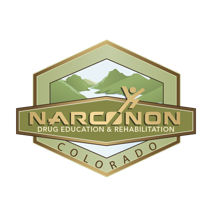The Difference between Knowing There Is a Problem and Doing Something About It

Getting to the point of accepting help for an addiction is usually a process. Yes, every person is different but there are often similarities between common experiences. Many times a person will know or suspect that they have a problem long before they are willing to do something about it. Unfortunately, they will often wait until things get worse before they decide that they need to change. That being said, here are some of the common stages a person might go through before they are willing to accept getting help. (Please note that this does not mean a person needs to go through each of these stages before getting help—the sooner a person gets help the better.)
The Stage of Experimentation
Everyone who has an addiction started out in the experimentation phase. Even if things developed from some form of prescription medication given by a doctor, this was still a form of “experimentation.” The reason for this is that no one really knows whether or not they will develop an addiction when they first start out. For whatever reason, some people are able to try something once and never do it again while others get hooked right away. You never really know until it happens and at that point, it may be too late. This is why it is dangerous to experiment with drugs because you never know if you will become addicted.
The Stage of Ignorance
This is when things begin to slide from “recreational” use into substance abuse. Some people are able to go through phases in their life where they drink too much but are able to pull things back together without much effort, for others this may mark the “beginning of the end.” During this stage, people pass into their addiction without fully realizing that they have. It may become apparent to other people but the person dealing with it firsthand still thinks that there isn’t a problem and that they are doing ok.
The Stage of Denial
At this point, the person knows deep down that they have a problem but they aren’t ready to admit to themselves that they do. The person will try to convince themselves and the people around them that everything is fine in order to continue on with their substance use. When confronted by loved ones about the addiction, a person in the stage of denial will become extremely defensive while insisting that they are doing ok and they may then try to deflect the attention onto someone else.
The Stage of Realization
When things start falling apart, a person will begin to see how their substance abuse has shifted from “fun” to destructive. At a certain point the lingering thoughts of “do I have a problem?” become too loud to ignore and the person will begin to realize that they do.
The Second Stage of Denial
This stage doesn’t always happen but many times after a person realizes that they have a problem they will shift back into a state of denial. The issue with realizing you have a problem is that it becomes harder to ignore the fact that something needs to be done to fix it. Many times a person will attempt to shift back to denying they have an addiction out of fear of being sober or an unwillingness to change.
The Stage of Acceptance
Once a person has accepted that they have a problem they will no longer attempt to deny that one exists. This doesn’t mean that the person is “ready to change” but simply that they can no longer deny that they have an addiction. For some people this marks a turning point, for others, it doesn’t seem to make much difference.
The Stage of Unwillingness
This stage occurs when a person accepts and acknowledges that they have a problem but they are not yet willing to do anything about it. The person will admit that they have an addiction but they do not want to give up using just yet. This can be an especially frustrating stage for someone on the outside to see their loved one go through because, although the person acknowledges how destructive their substance abuse has become, they are not yet willing to give it up. Perhaps the only people who can fully understand this stage are the ones who have gone through it themselves.
The Stage of Willingness
When a person has finally accepted that they have a problem and that they no longer want to live the lifestyle that goes along with substance abuse they will enter the stage of willingness. At this point, they will be able to begin making positive changes and accept help from others. Some people will arrive at this stage rather quickly while others may take years.
Again it is important to remember that everyone is different and will have different experiences. Some people will go through all of these stages multiple times before they are finally able to commit to living a life of sobriety. Other people may go from ignorance to acceptance and willingness right away. It all really depends. The important thing for families to remember is that a person does not need to reach “rock bottom” before getting help.
Oftentimes an intervention is a very effective way to break through these stages rather quickly in order to speed up the process of someone accepting help. Encouragement to get better from family members is a very influential aspect of a person’s willingness to get sober. As always, the best thing someone can do to help someone they love who is struggling with addiction is to reach out to an addiction professional for guidance and support.


